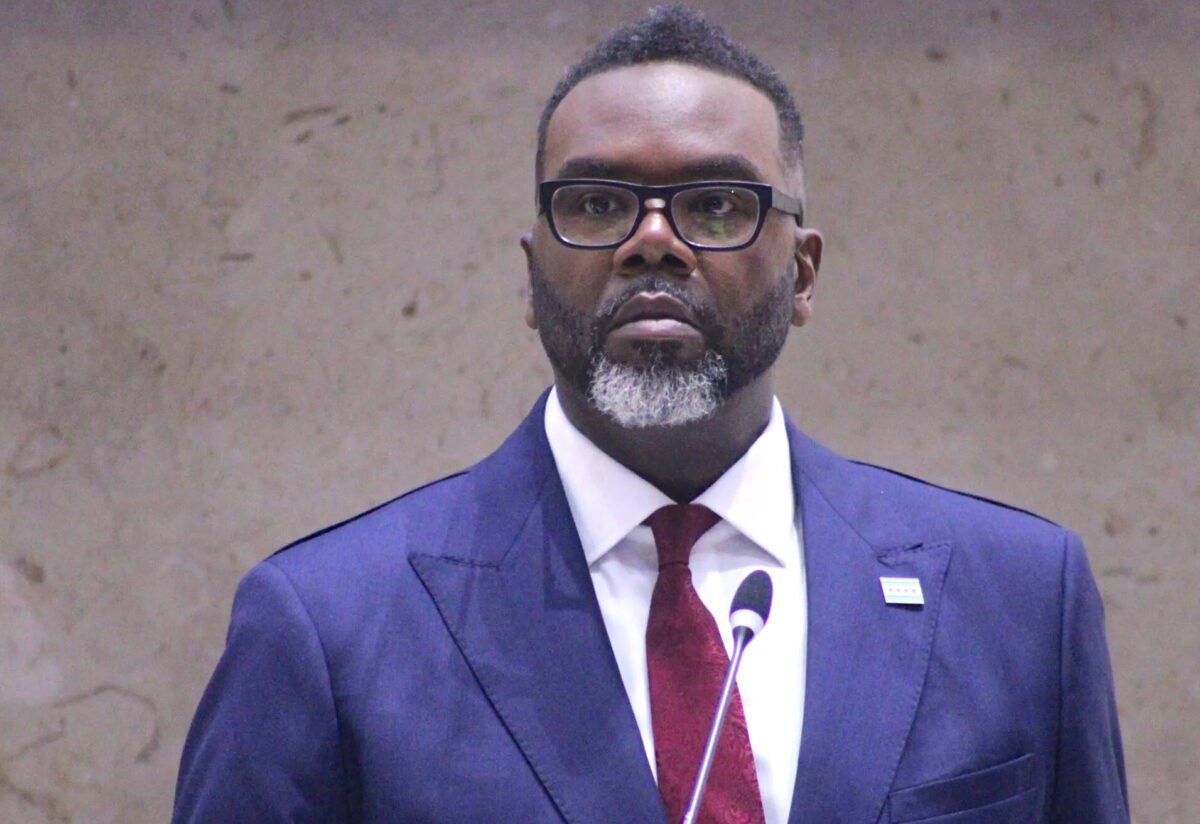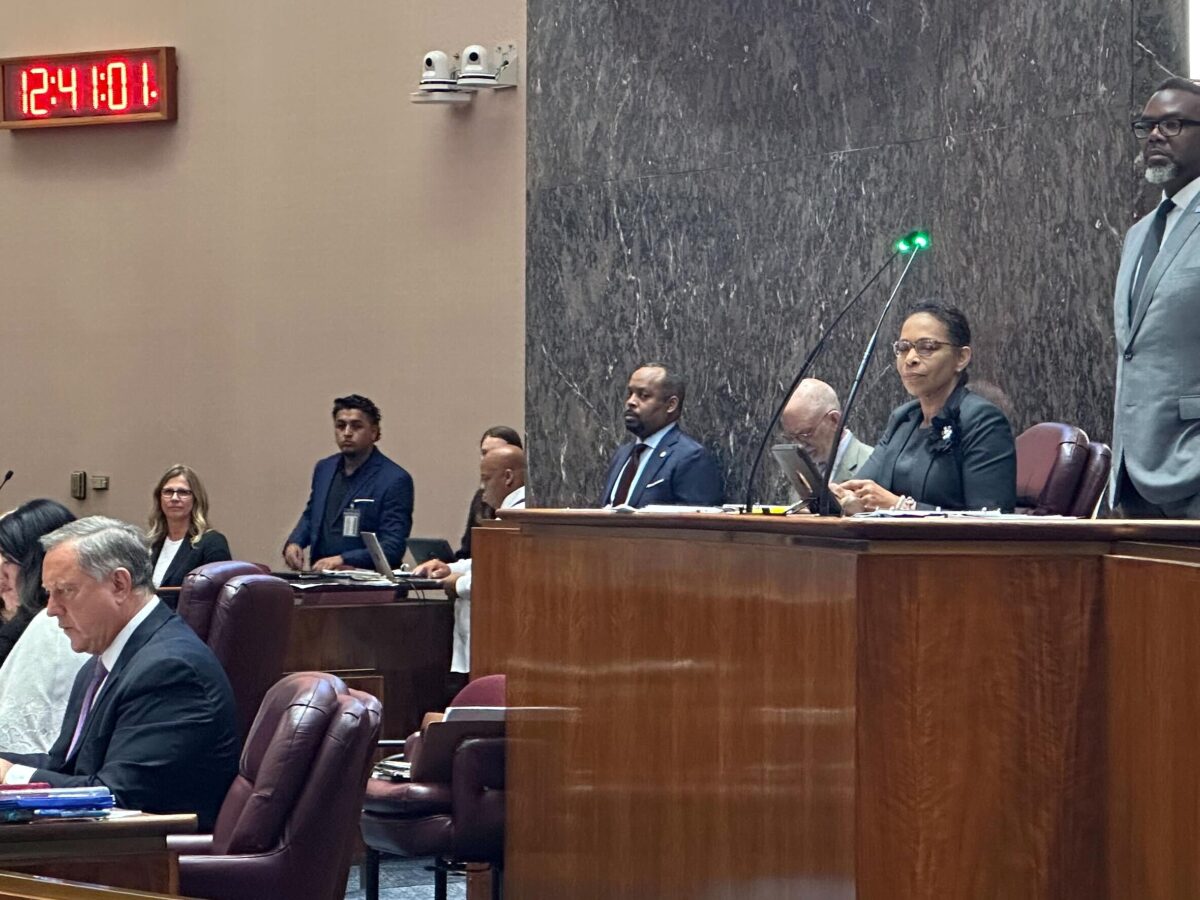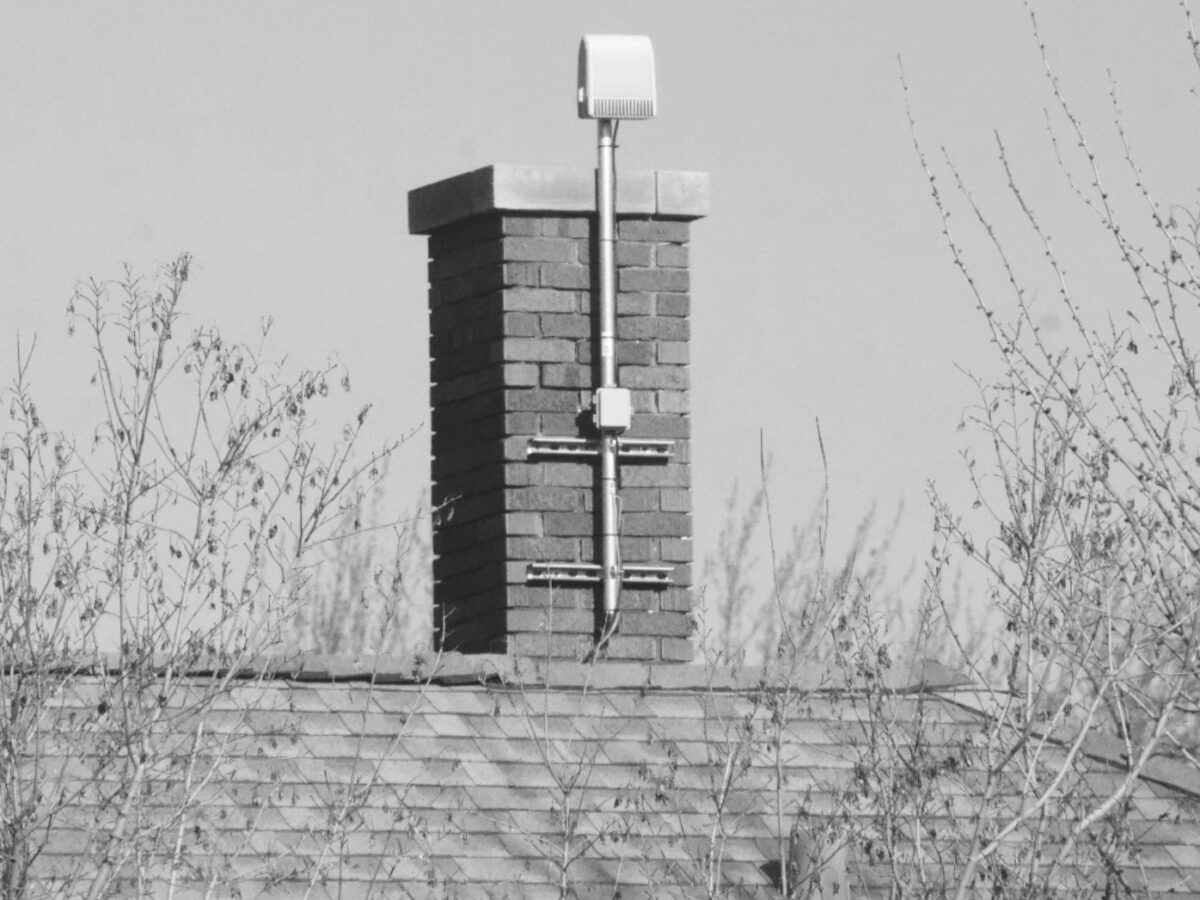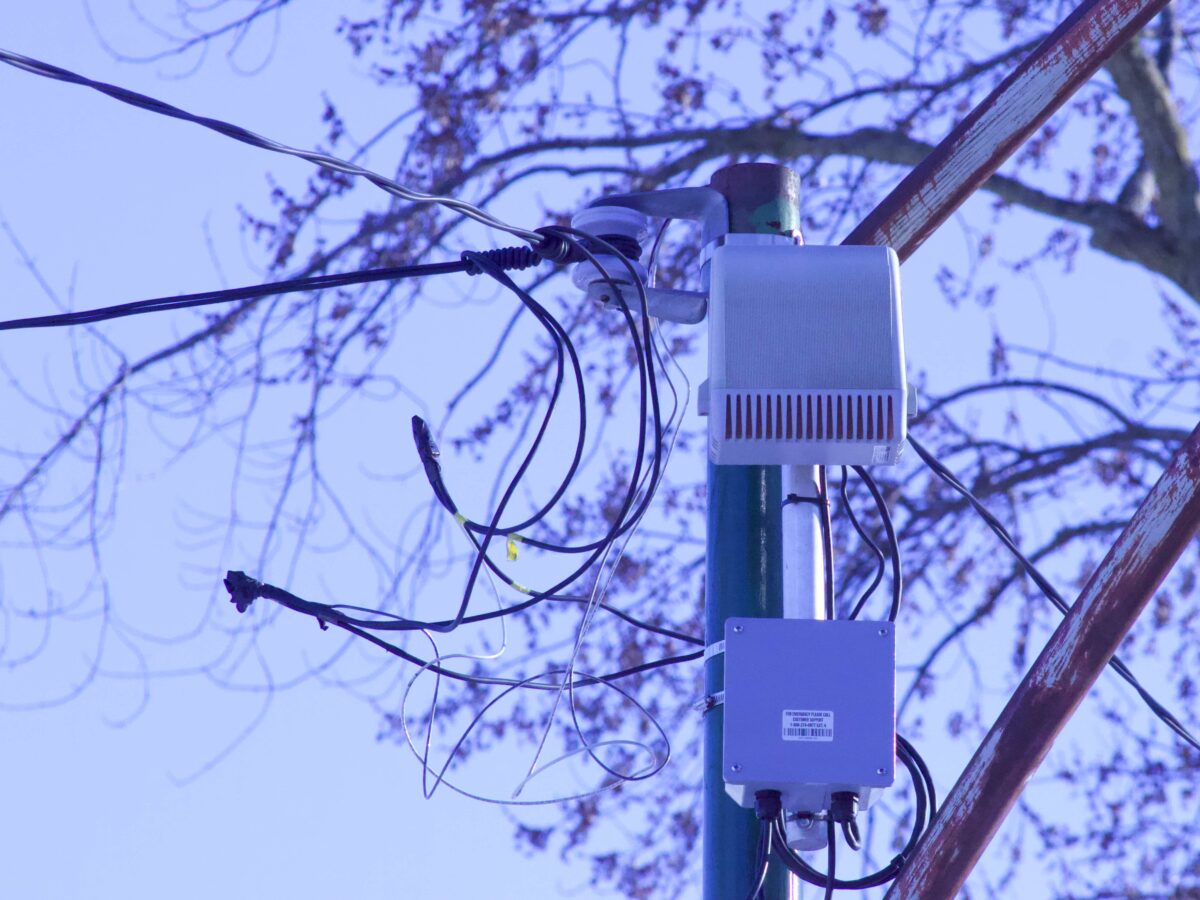The prayer delivered at the beginning of Wednesday’s City Council meeting hinted at the monthslong debate over Mayor Brandon Johnson’s decision to scrap the City’s contract with SoundThinking, a controversial gunshot-detection company formerly known as ShotSpotter.
“Father, would you help our leaders that are gathered together in this room to do the right thing for the right reason at the right time,” said Pastor Nelson Vargas before the assembled Council members. “Lord, I pray that you would grant them the ability to accept the things they can’t change, and to release control of certain things that are just outside of their realm of authority, that you’re not asking them to fix.”
Whose realm of authority the ShotSpotter contract falls under has been a point of contention since February, when Johnson announced he would make good on a campaign promise to cancel it. The following month, Ald. David Moore (17th) introduced legislation that would require a Council vote to cancel the contract. That ordinance passed 34-14 in May, but Johnson dismissed it at the time as an overreach by the legislative branch.
On Wednesday, the Council voted 33–14 to pass a new ordinance, also introduced by Moore, empowering CPD Superintendent Larry Snelling to negotiate a new contract with the company. After the meeting, Johnson promised to veto the ordinance, calling it “illegal.”
Speaking to the Weekly ahead of the meeting, Dick Simpson, a former alderman and professor emeritus of political science at UIC, suggested the ordinance was highly unusual. “It has always been the case, particularly for small contracts, that the mayor is free to make the contract as long as there’s money in the City budget,” Simpson said. “In really large contracts, that sometimes requires a special vote, or approval of the Council. But in general, the power has been left with the executive branch.”
ShotSpotter has long been a target of activists who say it doesn’t reduce violence and brings more cops to neighborhoods that are already overpoliced. After March 2021, when thirteen-year-old Adam Toledo was killed by police responding to a ShotSpotter alert, calls to cancel the contract grew louder. A report released by the Office of Inspector General later that year found that ShotSpotter alerts rarely led to documented evidence of a gun crime. In February, the Cook County State’s Office released a report showing ShotSpotter alerts led to an arrest just 1% of the time.
In January, a Weekly investigation revealed CPD reported hundreds of missed shootings to ShotSpotter last year, including a 55-round one that left two men critically wounded in Back of the Yards. Internal company emails showed ShotSpotter executives blamed the miss on downed sensors that they couldn’t quickly repair, and said they could not admit that to a City official.
READ THE WEEKLY’s multi-part investigation of shotspotter here:
Missed Shots
At the Council meeting, Frank Chapman, an organizer for the Chicago Alliance Against Racist and Political Repression (CAARPR), delivered public comments in favor of ending the contract. Chapman told the Weekly that the pro-police alders pushing to keep ShotSpotter are “usually tight with the budget,” and “don’t want no money spent when it comes to public housing, helping the homeless, youth employment programs, things of that sort.” But, he said, “they’re willing to waste money on ShotSpotter, which is not scientifically proven to be effective.”
Another public commenter, Sean Campbell, praised CPD’s response to protests at the Democratic National Convention and advocated for renewing SoundThinking’s contract. “ShotSpotter is something that is very good in terms of response,” he said. “We need to be able to respond when violent crimes are committed… ShotSpotter is a successful program that should be renewed.”
Several alders spoke for and against Moore’s ordinance during Wednesday’s debate. Ald. Andre Vasquez Jr. (40th) excoriated SoundThinking while Gary Bunyard, the company’s vice president of corporate development, looked on from the audience a few feet away. Last week, Bunyard offered the City a 48% discount to keep ShotSpotter.
“I think SoundThinking is a shoddy business,” Vasquez told his colleagues. “When they first came in, they said it was going to reduce violence, it was going to increase convictions. It did not do that.”
Vasquez added that had SoundThinking initially been presented as a life-saving tool, rather than a violence-reduction one, the conversation might be different. “But they were selling a bill of goods, trying to get as much money as they could, which is why they go from Whole Foods prices to your local corner store, and [are] slashing it down 48% hoping they could lock in a contract.”
Following the meeting, Bunyard declined to comment on the discounted offer.
Ald. Pat Dowell (3rd) was among the Council members who spoke in favor of ShotSpotter.
“People talk about this as a violence-reduction strategy, or to stop gun violence. That’s not what this is,” she said. “This is about a gunshot detection strategy so that we know where gunshots are coming from, and we need that. I would ask that you keep this in place until we come up with another way” to detect gunshots.
Ald. Desmond Yancy (5th) said that he was very conflicted about how to vote, but that he was supporting the ordinance because people in his ward overwhelmingly wanted to keep it. ShotSpotter “may be imperfect,” he told the Council, “but 72% of residents polled in my ward wanted to keep it or some similar technology.”
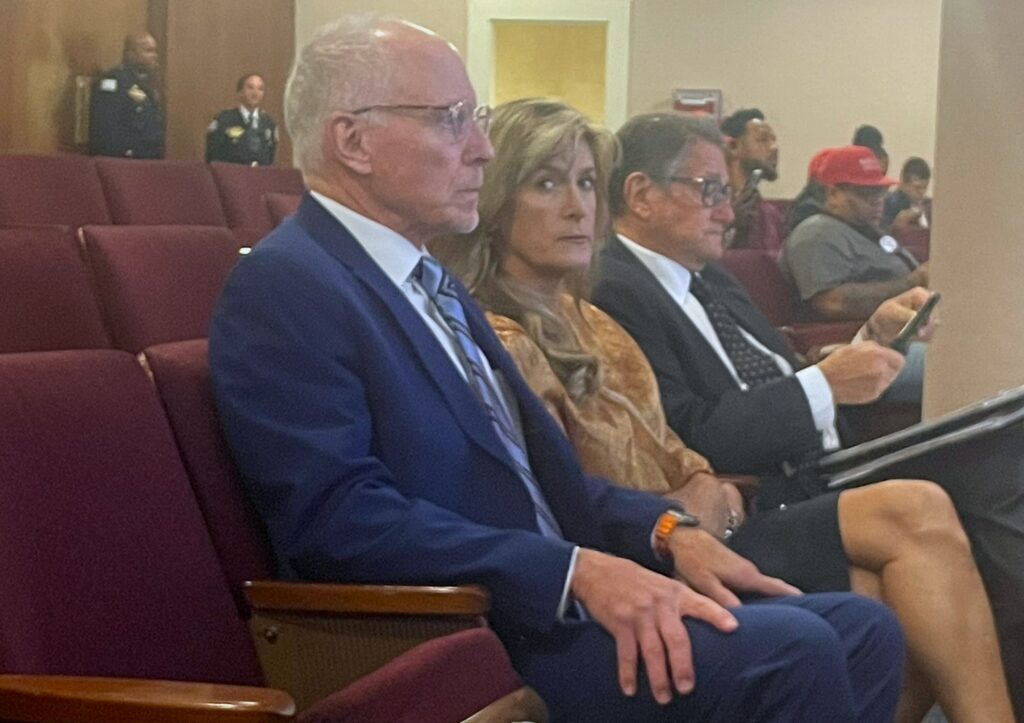
During the debate, Moore conferred with Lissa Druss, a lobbyist who helped him write an ordinance that passed in May requiring a full City Council vote on removing ShotSpotter. Campaign finance records show Druss has contributed at least $450 to Moore’s campaign committee since December 2023. After the meeting, Moore denied that the contribution had any influence on him.
“I don’t have a price,” Moore said. “And trust me, $450 is not going to move me.”
Moore also claimed that Druss had been a longtime contributor. Campaign finance records dating back to 2011 show no donations prior to December 2023. Asked whether she’s made any other contributions to Moore, Druss replied that she didn’t remember what she’d had for breakfast that morning.
After the meeting, Moore contended that his ordinance was designed to spark a conversation with Johnson about gunshot detection technology. Asked if he expected Snelling, whom Johnson appointed, to go against the mayor’s wishes, Moore said, “I expect the administration to work with us. I think the mayor sees what the communities are saying, what the aldermen are saying, and I expect them to work with us.”
At a press conference following the meeting, Johnson suggested that he might be open to such a conversation, noting that his office has issued a Request for Information for technology solutions to gun violence. He added that he was open to other gunshot-detection companies providing the service to Chicago.
“The whole point of opening up the process was so that everyone can participate, and so [SoundThinking] can make their case like everyone else,” Johnson said. That appears to contradict a statement he made in February: a WBEZ reporter had asked Johnson if he would consider another gunshot-detection vendor to replace ShotSpotter, and the mayor said, “No.”
But Johnson was clear Wednesday about his intention to veto Moore’s ordinance, which was one vote shy of a veto-proof majority. Johnson repeatedly said the ordinance was unconstitutional, a position echoed by Corporation Counsel Mary Richardson-Lowry.
“Because [Moore’s ordinance] was an act by a legislative body that is reserved for the executive body, it is not only challengeable by the executive body, it’s challengeable by anyone who would think that [City Council is] usurping contractual rights,” Richardson-Lowry said.
A spokesperson for the Mayor’s Office told the Weekly that ShotSpotter will stop providing alerts to CPD on Sunday, September 22.
Jim Daley is the Weekly’s investigations editor.

